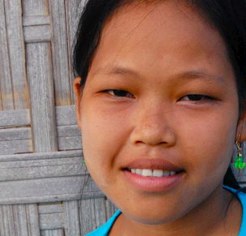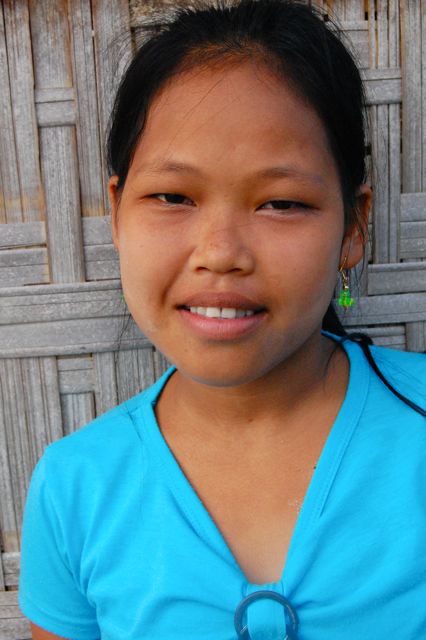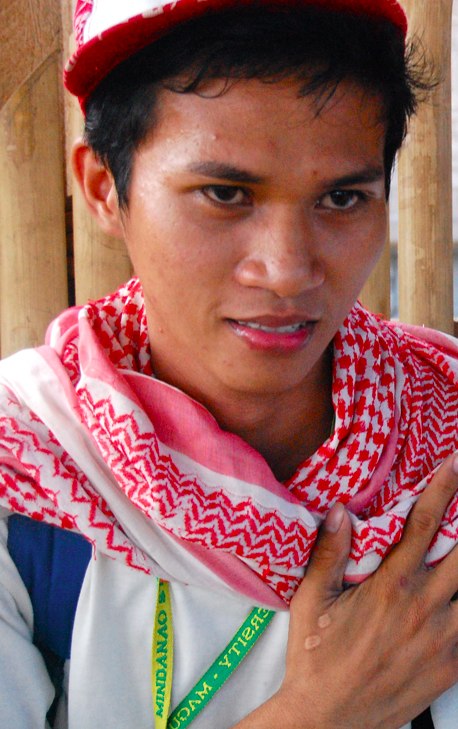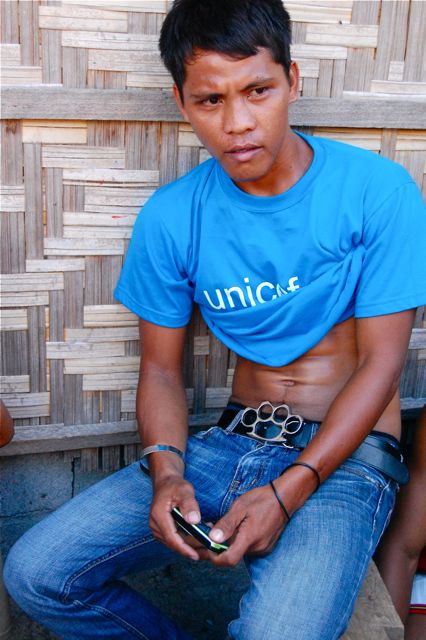(In January 2011, and thanks to the ICRC Young Reporter Competition, I had the fortune of visiting the ICRC mission in the Philippines to report on the situation of youth. This post is part of a series I wrote on this visit. Click here to see the rest of the posts.)
The way we perceive beneficiaries in general is a big subject of debate in all spheres related not only to armed conflict, but also to philanthropy and social work in general. PR specialists and executives need to sit down and think of the people that their organizations want to help, and to shape in a way the view their supporters have of them. I think, however, that this debate needs to reach every single individual on Earth.
The young beneficiaries I met in the Philippines were not the ones that you see in poverty porn fundraising campaigns. They are young people like any other, with aspirations, likes, connected to a culture. First of all, they are daughters, or students, or hip hop dancers, or citizens of their country; they are also partly defined by the conflict they’re immersed in, but not to the extent we all seem to believe they are.
This lovely girl’s biggest aspiration at her thirteen years of age is to be able to help her parents when she becomes a grown up. She wants to support them so that they won’t need to flee their home again. But that doesn’t impede her from loving, and I really mean loving, to sing.
This guy here is a talented dancer. What he most excitedly speaks about is the fact that he joined this dance competition with friends and got a prize. He also finds his appearance important, and he thought some colorful shoes should be in his wardrobe.
This guy here, as you may notice, is holding a mobile phone – like all teenagers in his community. Many people I know would think that that’s a really stupid thing for somebody like them to do; after all, they have bigger things to worry about, like staying alive.
What these people don’t realize in their ‘pop culture ain’t for them’ conception of things is that mobile phones aren’t a superfluous and undeserved luxury for them, but a very important aspect of their lives. Mobile phones give teenagers in Mindanao responsibilities that set them apart from younger children; they allow them to expand their physical environment, since their parents can get in touch with them even if they’re not in the same space; they allow them to stay in touch with people who they cannot see anymore because of the conflict.
Mobile phones are important for adults, too. One of the beneficiaries we met is able to stay in touch with her imprisoned husband now that they can speak on the phone; mail service was not reliable, and it took long.
People do need food, shelter and security. I think we all agree on the fact that, without those, little progress can be made. And people are defined in a way by their experiences and the environment they live; living in a conflict does have a toll on people. But thinking that that’s all people need, or that there is nothing to think of but ‘conflict’ when considering the needs of these human beings, can lead to projects that fail to deliver a good solution for the communities that are most vulnerable today. It can lead us to thinking of dignity, rights, in the same simplistic way that has been challenged throughout history.
Next time you lend money to an entrepreneur in Africa, or you donate to an organization that helps conflict victims, or you become an aid worker yourself, try to think of this person as an equal, and not just as a beneficiary. I think a world of possibilities will be opened.
Photo credits: © CICR/García Montes, Mariel
The here shown material has been produced with the authorization of The International Committee of the Red Cross (ICRC). However, it does not necessarily reflect the ICRC’s views, and the ICRC may not be held liable for any content here shown.




Poverty has different dimensions. I think economically disabled may be the more appropriate term to capture the gravity of the problem. This post is something that every organisation should read. As you said, the need to define who the beneficiaries are cannot be stressed on enough